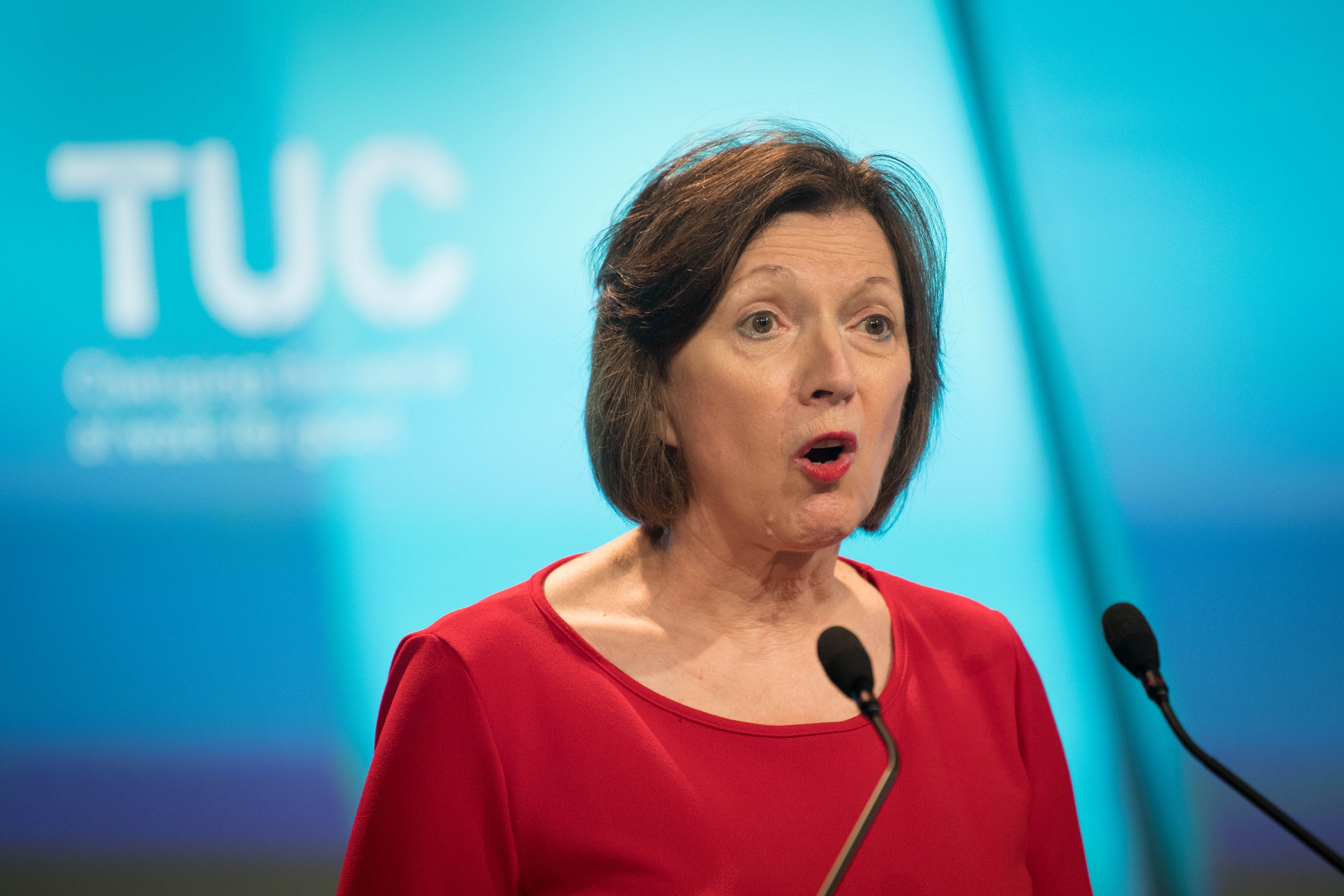Emergency budget needed to tackle cost-of-living crisis, says TUC
Energy bills will rise at least 10 times faster than wages this year, the union body warned.

Your support helps us to tell the story
From reproductive rights to climate change to Big Tech, The Independent is on the ground when the story is developing. Whether it's investigating the financials of Elon Musk's pro-Trump PAC or producing our latest documentary, 'The A Word', which shines a light on the American women fighting for reproductive rights, we know how important it is to parse out the facts from the messaging.
At such a critical moment in US history, we need reporters on the ground. Your donation allows us to keep sending journalists to speak to both sides of the story.
The Independent is trusted by Americans across the entire political spectrum. And unlike many other quality news outlets, we choose not to lock Americans out of our reporting and analysis with paywalls. We believe quality journalism should be available to everyone, paid for by those who can afford it.
Your support makes all the difference.Union leaders are calling for an emergency budget to help working families who are at “breaking point” because of the cost-of-living crisis.
The Trades Union Congress (TUC) said pay and benefits will be “swallowed up” by higher bills and inflation, with households hit with crippling new energy bills as the price cap rises on Friday.
The union body said measures announced in the Chancellor’s spring statement last week were “woefully inadequate”, warning of the worst living standards crisis in generations
Britain faces the worst living standards crisis in generations
The TUC said the Chancellor should return to Parliament to announce fresh economic support, including an increase in the minimum wage to at least £10 an hour, new grants paid for by a windfall tax on energy and oil company profits and an increase in Universal Credit.
The TUC estimated that energy bills will rise at least 10 times faster than wages this year.
TUC general secretary Frances O’Grady said: “People shouldn’t be struggling to cover the basics, but millions of families have been pushed to breaking point by spiralling bills and soaring inflation.
“This is a living standards emergency. Rishi Sunak must come back to Parliament and present an emergency budget. We need a proper package of economic support for families.
“Britain faces the worst living standards crisis in generations. We need an emergency budget to bring down energy bills and to boost pay, Universal Credit and pensions.”
The TUC added that the Chancellor should announce further support for public services and energy intensive businesses to help them deal with sharp rises in costs.
Rachel Reeves, shadow chancellor, said: “Rishi Sunak is out of touch and his cynical political choices are making the cost of living crisis worse by hiking taxes for workers while shielding the record profits of oil and gas producers.
“The Conservatives should adopt Labour’s plans for a one-off windfall tax to provide cut household energy bills by up to £600 – and do so as fast as possible.
“The Chancellor’s spring statement was totally inadequate in addressing the realities facing working people and the least well off.”
A Government spokesperson said: “We understand that people are struggling with the rising cost of living – we can’t shield everyone from the global challenges we face but we’re putting billions of pounds back into the pockets of hard-working families across the UK.
“We are taking action worth over £22 billion next financial year to help people with the cost of their energy bills and to ensure people keep more of their money.
“We’re increasing the national insurance thresholds, saving a typical employee over £330 a year, we’ve put in place a £9.1 billion package to help households with rising energy bills, we’re boosting incomes by £1,000 on average for a full-time worker by increasing the National Living Wage, and we’re helping low-income families keep more of what they earn by reducing the universal credit taper rate.”